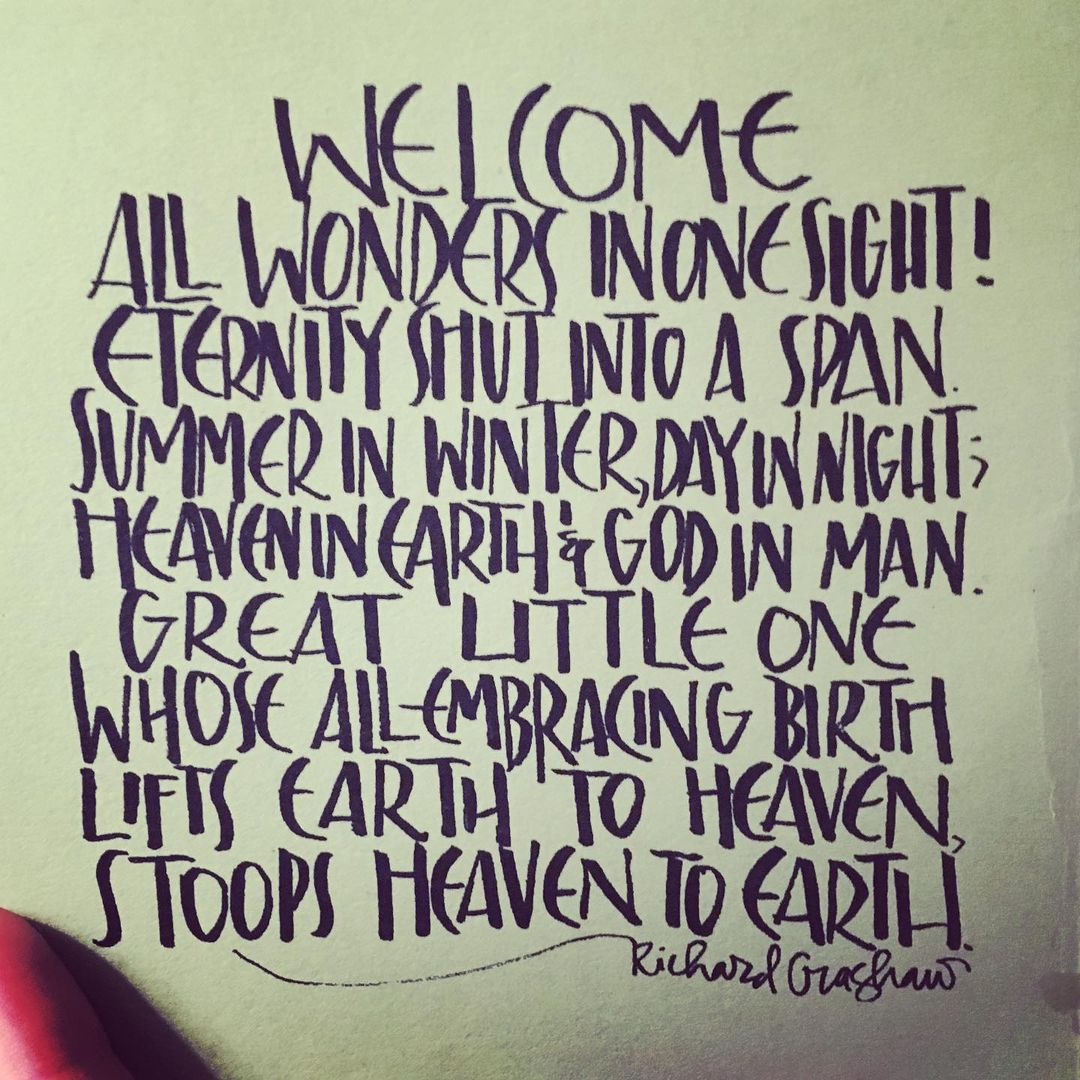Possible Preaching Themes
Possible Scientific Resources
- The immensity of God vs. the smallness of a baby.
- God is “growing” both in ways that exceed the expansion of the universe, as well as – literally – growing as a baby.
- The love of God revealed in the Incarnation.
- The Universe is immense and expanding and it is difficult for people to grasp its size. God fills all of this and more, yet comes as a tiny baby in the Incarnation. It echoes the words of poet Richard Crashaw “…eternity shut in a span.” On the ever expanding universe, see these short articles and videos :
- https://lweb.cfa.harvard.edu/webscope/activities/pdfs/galaxiesT.pdf
- https://nineplanets.org/questions/how-big-is-the-universe/
- https://www.youtube.com/watch?v=AC7yFDb1zOA
- https://www.nationalgeographic.com/science/article/the-universe-is-expanding-faster-than-it-should-be
- https://indiana.pbslearningmedia.org/resource/nviu-sci-hubbleexpansion/hubble-and-the-expanding-universe/
- Love – in human terms – entails some physiological reactions in the brain. Is God’s love like this, or beyond it? These articles and one short video give a glimpse of what science says about love:
- https://news.harvard.edu/gazette/story/2018/02/scientists-find-a-few-surprises-in-their-study-of-love/
- https://www.sciencefocus.com/the-human-body/how-love-changes-your-brain/
- https://www.brainfacts.org/thinking-sensing-and-behaving/emotions-stress-and-anxiety/2021/i-love-you-with-my-whole-brain-the-neuroscience-of-love-101321
Homily Outline Combining Resources
Homily outline combining sources:
The immensity of God’s universal love:
- The universe is huge, but God is yet larger, filling all things.
- How and why does such immensity become located in the person of a baby? There can be but one theological answer:
- Love is the binding agent that ties the events (shepherds, angel choirs, pregnancy) to its meaning (incarnation, redemption, salvation).
- Science is discovering that “love” includes a host of brain functions for human beings.
- God’s love may include such physiological phenomena, but God’s love cannot be reduced to such things. God’s love must be more than human/scientific understandings of “love.”
An Expansive yet Intimate God:
- Science informs us that the universe is expanding.
- Ironically, in the incarnation, God quite literally becomes
- Two things can be true at once:
- God is always larger than the expanding universe.
- In the incarnation, God’s historical presence in Jesus is physically smaller than the universe.
- This condescension is an act of love and enables divine intimacy at a very human level.
We form meaning one bite of information at a time:
- Such large expanses of space cannot be comprehended by the human mind.
- We have to perceive certain “chunks” of information and then relate them to other stimuli.
- Similarly, God – who is yet larger – cannot be comprehended by the human mind.
- For the Incarnation to mean anything to us, it has to be digested in small pieces.
- The things of earth fill the Christmas story in order to help us digest it:
- Pregnancy (“…eternity shut in a span”);
- Mary, who has to make sense of all of this one step at a time;
- Shepherds who are given a specific task: go find the child;
- Later, the Magi witness the immensity of the heavens reorganizing itself to point to the Incarnation.
- Did the vastness of space reorganize itself to pay homage to the Incarnation? Christians say yes.
Light reaching forward and backwards
- Many of the readings today deal with the concept of light or seeing (First Reading, Psalm, Second Reading, and Gospel).
- Light from stars that we see in the universe today is the physical record of something that has already happened.
- This means that what we understand as “cosmic history” is not linear, since the images we receive through the Hubble and James Webb telescopes – like an exploding nova – are records of events that have already happened. Light is actually a kind of cosmic time machine.
- Similarly, the yearly celebrations of Christmas are a religious way of “seeing” an event that has happened, yet an event that is being experienced right now.
- The medieval Church understood this well in its celebrations of the Annunciation: salvation was as good as “done” the moment that Gabriel appeared to the Virgin Mary;
- The grace of the historical birth of Jesus thus reaches forward (to now),
- and backward, clearly to the Annunciation, but one could argue even farther
- for in the beginning was the Word (John 1:1).
- Science is learning to speak of time reversing itself.
- The Christmas story is full of reversals as well:
- the angels go back into heaven;
- the shepherds change the course of a normal evening (tending the sheep) to go to Bethlehem;
- God comes extra nos from divine omnipotence to condescended smallness;
- Easter is the same: saving what comes after it, as well as saving what came before it.
- In this way, Easter and Christmas are two sides of the same coin: salvation. Do not forget that they are related!
- God is only God in self-disclosure: we would know nothing of God were God not interested in letting us know something.
- The shepherds themselves say this (“…which the Lord has made known to us.”)
- To “know” anything about God is, like light, an illumination of understanding: an understanding of what has happened and an understanding of what is happening!
- The Christmas story is full of reversals as well:
The Incarnational Mission
- A key way that the gift of incarnation shines forward is through the baptized.
- We are the embodiment of the Christ light, so needed to shatter the darkness of prejudice and violence in our own time.
- As we celebrate the expanding mystery of God’s presence, that fills all of the cosmos,
- We also recognize that that same illuminating presence fills each of us, as tiny as we might appear in the history of salvation.
- Thus this holy morning we not only celebrate this immense gift of cosmic light that still engulfs us,
- But also commit ourselves to its expansion in our communities and in the world.
Poetic musing: so with the poet we give thanks:
“Welcome, all wonders in one sight!
Eternity shut in a span;
Summer in winter; day in night;
Heaven in earth, and God in man.
Great little one, whose all-embracing birth
Lifts earth to heaven, stoops heav’n to earth.”
Related Homily Outlines
Couldn’t find what you’re looking for?
Try searching with another filter

Preaching with Sciences

Edward Foley, Capuchin
Duns Scotus Professor Emeritus of Spirituality
Professor of Liturgy and Music (retired)
Catholic Theological Union
Vice-Postulator, Cause of Blessed Solanus









